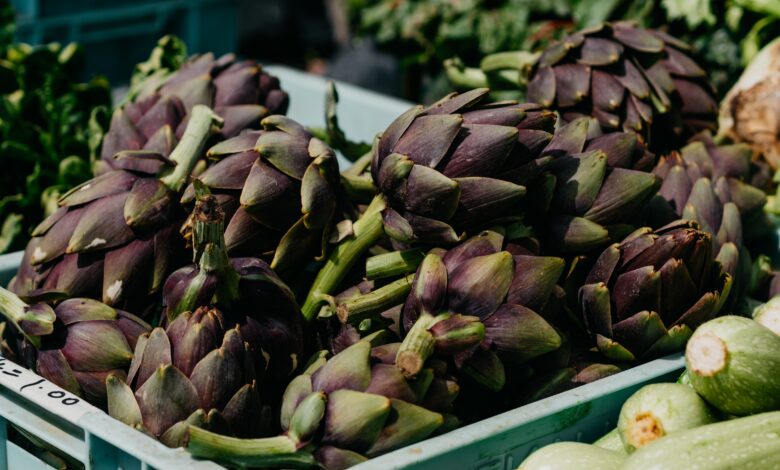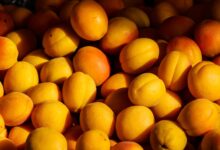Artichoke, its advantages and disadvantages

As a dietary supplement, the benefits of artichoke
Originally from the Mediterranean basin, the artichoke is an ally for treating dyspepsia. It is a collection of symptoms of pain or discomfort in the upper abdominal region, with origin in the upper gastrointestinal tract. As a dietary supplement, its use is also appropriate to relieve digestive disorders and potentially to reduce cholesterol levels. Its active ingredient, cynarin, is part of the polyphenol family. Depending on the pain to be relieved, the recommended dose varies, which is why it is necessary to consult your doctor before starting a cure. If you suffer from gallstones, you must consult your doctor.
Artichoke dosage
| Traditionally, artichoke herbal products came in the form of fresh or dried leaves, juice from the whole plant, or various liquid or solid extracts. Nowadays, extracts standardized to 5% cynarin and dry leaf extracts are commercially available in tablets or capsules, with an extraction rate of 4:1 (4 g of plant in 1 g of ‘extract) or, more often, 12:1. Cynarin is the active ingredient of the plant. |
Digestive disorders (dyspepsia)
- Extract standardized to 5% cynarin or 12:1 extract (1 g of extract comes from 12 g of plant). Take 320 mg to 640 mg per day, in 1 or 2 doses.
4:1 extract (1 g of extract comes from 4 g of plant). Take 960 mg to 1920 mg per day, in 1 or 2 doses. - Dried leaves. Take 2 g, 3 times a day.
| Allow up to 6 weeks for the full effects of treatment to be felt. |
Reduction of cholesterol level
- Extract standardized to 5% cynarin or 12:1 extract (1 g of extract comes from 12 g of plant). Take 1800 mg to 3600 mg, in 2 or 3 doses per day.
4:1 extract (1 g of extract comes from 4 g of plant). Take 5,400 mg to 10,800 mg per day, in 2 or 3 doses.
Description of the artichoke
The artichoke , as it is eaten at the table, is in fact only the flower bud of the plant: these leaves are actually “bracts”. The true leaves, those used for medicinal purposes, grow along the stem. They are also edible (blanched or cooked), but are generally not available commercially.
History of the artichoke
We know, thanks to ancient graphic representations, that the Egyptians already cultivated the artichoke in High Antiquity. The Greeks and Romans imported it and used it to aid digestion and to treat liver and kidney disorders. In traditional European medicine, artichoke leaves have been used for a long time, and still today, to stimulate kidney activity and bile secretion. The plant is used in the composition of many traditional preparations intended to stimulate the production of bile. It has been used a lot to prepare aperitif drinks.
The artichoke is grown extensively in the Mediterranean region, but California has also made it a crop of choice for nearly 100 years. In Quebec, it has been produced for a short time.
- bridge

- Allergies (overview)

- Achluophobia : all about the fear of the dark

- At what age can you do bodybuilding?

- Fatigue in the morning: causes and remedies

Artichoke research
| The study of the medicinal effects of the artichoke began at the beginning of the 20th century, when French researchers confirmed its alleged action on the kidneys and the gallbladder. Around the middle of the century, Italians isolated from the plant a compound which they named cynarine. The latter is part of the family of polyphenols.This substance was subsequently synthesized and used until the 1980s to stimulate the liver and gallbladder, as well as to lower cholesterol levels, to be eventually replaced by other synthetic drugs. Several of the tests mentioned below were carried out with a standardized extract of artichoke leaves , made in Germany, Hepar-SL®forte. |
Digestive disorders
The artichoke has the property, among other things, of increasing the production of bile , which facilitates digestion. A placebo-free trial in 454 subjects and a double-blind placebo-controlled study in 244 patients confirmed the beneficial effect of an artichoke extract (640 mg daily, in 2 doses) in relieving discomfort digestive issues related to poor functioning of the gallbladder and liver (dyspepsia).
In 1997, a researcher published a summary of various pharmacovigilance studies (see note below) having covered more than 1,000 people followed for 4 to 6 weeks. The results showed that treatment with artichoke leaves significantly reduced the symptoms associated with dyspepsia, without causing any significant adverse effects . Another pharmacovigilance study that followed subjects for 6 months came to the same conclusions .
Note. The main objective of a pharmacovigilance studyis to list the possible undesirable effects and not the therapeutic effects of a substance. The therapeutic results reported in these studies therefore do not, in themselves, constitute proof, but rather an indication of the effectiveness of the artichoke in treating dyspepsia.
Commission E recognizes the use of artichoke leaves to treat dyspepsia, a complex set of digestive symptoms more or less directly related to non-functional disorders (i.e. without organic damage) of the hepato-biliary system . Until recently, like herbalists, classically trained doctors generally treated these ailments with bitter substances, such as those found in artichokes and milk thistle. In Europe, these plants are part of many pharmaceutical preparations intended for the treatment of various disorders of hepatic and biliary origin. This effect is generally attributed to the flavonoids contained in the plant and their metabolites ,
Hypercholesterolemia. In a double-blind trial of 143 subjects with hypercholesterolemia, taking an artichoke extract (Valverde Artischocke®, 1800 mg daily), lowered cholesterol levels significantly more significant than the placebo, ie 18.5% and 8.5% respectively . This effect had also been observed during the pharmacovigilance studies mentioned above and during uncontrolled trials .
A more recent placebo study also yielded positive, but modest, results in 75 subjects. The participants took, for 12 weeks, either a placebo or 1280 mg of an artichoke extract (Cynara Artichoke®) 10 . On the basis of these 3 trials, the authors of a meta-analysis conclude that the data are favorable, but insufficient to clearly conclude on the effectiveness of the artichoke. They note, however, that the side effects of this plant are rare, mild and temporary .
We have a fairly solid theoretical basis to explain this effect of the artichoke on the cholesterol level , since certain compounds of the artichoke, luteolin for example, would inhibit the synthesis of cholesterol prevent the production bad cholesterol .
Irritable Bowel Syndrome . The results of a pharmacovigilance study of 279 subjects with irritable bowel syndrome found that 96% of them considered artichoke treatment to be as effective or more effective than other treatments. treatments they had been given in the past, with the aim of relieving the symptoms of their illness . In a subsequent analysis of these same data, the researchers noted, in 208 adults suffering from irritable bowel syndrome, a 26% decrease in the incidence of this disorder, a 41% reduction in symptoms and an improvement in 20% of quality of life .
Treat a hangover . In traditional herbalism, the artichoke is often recommended to treat the effects of overconsumption of alcohol, the famous “hangover”. The plant is considered an antiemetic, antispasmodic, and carminative. Until now, research has not confirmed the effectiveness of the artichoke for this use . In 2005, a systematic review of clinical data concluded that no conventional or alternative treatment had proven effective in preventing or treating “hangovers” . The authors suggest abstinence or moderation!
Precautions
Attention
- In case of gallstones, consult a healthcare professional before taking artichoke.
Contraindications
- Artichoke leaf extract is contraindicated in case of obstruction of the bile ducts because, in this case, stimulation of bile production could cause serious problems.
- People with allergies to plants in the Compositae family (daisies, asters, chamomile, etc.) may experience reactions to artichokes . A few cases of allergies have been reported .
Side effects
- Taking artichoke extracts can occasionally cause mild temporary side effects: loss of appetite, diarrhea, flatulence.
Interactions
With plants or supplements
- None known.
With medication
- None known.








